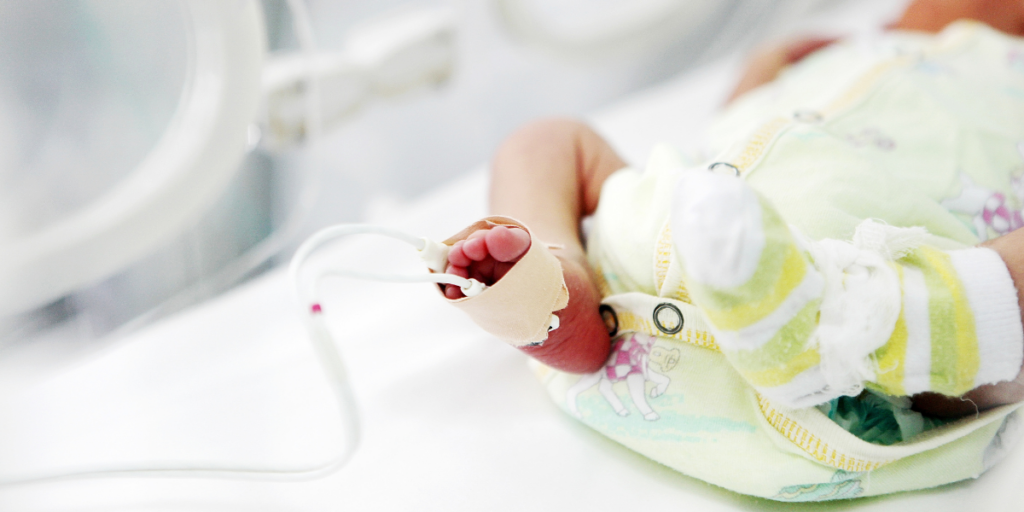Imperial College London adapts Picker’s Neonatal Parent Experience Survey
Each year in the UK, over 90,000 newborn babies are admitted to neonatal units for intensive care. For parents, this is an understandably frightening and distressing time, with around 2 in 5 (40%) experiencing anxiety, depression, and post-traumatic stress disorder.
Picker’s Neonatal Parent Experience Survey has been successfully used to measure and understand experiences of neonatal care in England. The survey was developed in 2010 and revised in 2014 in partnership with Bliss and UK neonatal representatives, focusing on family-centred care; information sharing; communication; support; and involvement.

A team at Imperial College London embarked on a project to improve the experience of parents of babies receiving care on neonatal units, called BUDS (Better Use of Data to improve parent Satisfaction). They discovered Picker’s neonatal survey, which was validated for use with parents of babies who had received neonatal care, but spotted a gap in the measurement of real-time care experiences. The survey was retrospective and only given to parents when babies were near or after discharge. To bridge this gap, the team approached Picker to license the survey for adaptation into the survey Parents’ Experiences of Communication in Neonatal Care (PEC), with the aim to:
- Measure the satisfaction of parents with a baby currently in neonatal care, ensuring it was suitable for ‘real-time’ feedback.
- Measuring parent experiences of communication’ and involvement in care in particular.
Picker provides their expertise on the project
Picker was invited to collaborate on the project, joining a steer group to provide expert advice and consultancy on how to adapt their existing neonatal survey for real-time feedback. This included:
- Meeting at regular intervals to advise on the adaptation approach and question-wording.
- Advising on assessing the validity of the new survey via:
- cognitive testing (to ensure that the changes were fit for purpose)
- exploring the usefulness of questions by reviewing patterns in the resulting data (such as missing data) following implementation and data collection, to inform any final adaptations to improve the survey.
Dr Susanna Sakonidou, a consultant neonatologist at Glasgow’s Royal Hospital for Children, who led the Imperial College Project team, found Picker’s contributions to the project invaluable to its progress and credibility. She said,
Knowing the wealth of experience and expertise Picker has in survey design, we were delighted when they agreed to collaborate on this project. We met early on to explore options for survey adaptation and agreed upon requirements for assessing the adapted survey’s validity. We were given clear guidance on the survey revision and redesign approach, with Picker representatives joining the project steering group.
Once questions were jointly chosen by the steering group from the original 2014 survey and some new questions added, we were guided through how to assess the validity of the survey, including face validity, cognitive interviewing, and assessing how well questions performed following data collection
A positive response to the new survey
Now available to licence alongside the original survey, PEC has seen a number of neonatal units express interest in using it, with administration of the survey currently being completed on the tertiary neonatal unit at the Royal Hospital for Children, Glasgow, and a future citywide roll out to the three neonatal units of Greater Glasgow and Clyde. The survey has also seen international interest, with the Neonatal Intensive Care Unit of Hospital Garcia de Orta, Almada in Portugal looking to not only use the survey but translate it into Portuguese and validate it for the population.
Picker’s care experience tools
Picker develop surveys and tools to assist organisations with understanding the views and experiences of patients, service users, and staff to facilitate quality improvement. These resources, built around our Principles of Person Centred Care, can be accessed under a licence agreement or by commissioning Picker to collect and report on survey data. They can also be used in research projects and evaluations, with Picker welcoming conversations about potential collaborations.
Dr Susanna Sakonidou is pleased with the outcome of approaching Picker to not only licence the survey but also to ask for project support. She says,
At every step of the way, Picker was approachable and supportive, with a genuine enthusiasm for the survey work and wider project. Different members of the Picker team have been involved in this project at different times, and any handover of survey management between them has always been seamless in their communication with my team. We feel very fortunate to have collaborated with Picker as a leading expert in survey design, which ensured that the PEC survey was robustly designed and tested. We look forward to future collaborations with Picker and thank them again for all their support

